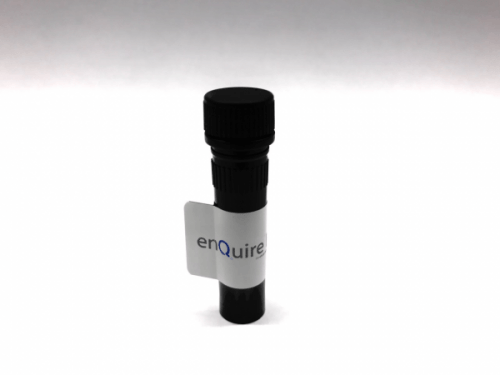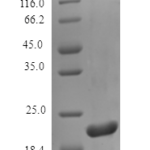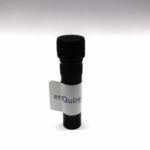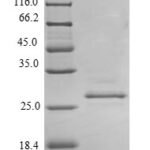Human Anti-Prolactin / PRL Antibody Product Attributes
Species: Human
Tested Applications: ELISA, CLIA.
Clonality: Monoclonal
Anti-Prolactin / PRL Antibody Clone: PRL-Q8
Clone PRL-Q8 Host and Isotype: Mouse IgG2b
Buffer and Stabilizer: PBS (pH 7.4)
Antibody Purification Method:Protein G
Storage Conditions: Upon receipt aliquot and store at -20C or -80C. Avoid repeated freeze.
Prolactin / PRL Previously Observed Antibody Staining Patterns
| Prolactin / PRL General Information | |
|---|---|
| Alternate Names | |
| Prolactin, Leuteotropic Hormone, Leuteotropin, PRL | |
| Curated Database and Bioinformatic Data | |
| Gene Symbol | PRL |
| Entrez Gene ID | 5617 |
| Ensemble Gene ID | ENSG00000172179 |
| RefSeq Protein Accession(s) | XP_011513056, NP_000939, XP_011513055, NP_001157030 |
| RefSeq mRNA Accession(s) | XM_011514753, NM_001163558, XM_011514754 NM_000948 |
| RefSeq Genomic Accession(s) | NC_000006, NG_029819, NC_018917 |
| UniProt ID(s) | Q5I0G2, P01236, Q5THQ0 |
| UniGene ID(s) | Q5I0G2, P01236, Q5THQ0 |
| HGNC ID(s) | 9445 |
| Cosmic ID(s) | PRL |
| KEGG Gene ID(s) | hsa:5617 |
| PharmGKB ID(s) | PA33790 |
| General Description of Prolactin / PRL. | |
| Prolactin (PRL), also known as luteotropic hormone or luteotropin, is an hormone formed by a 199aa mature chain consisting of three disulfide bonds. Prolactin is secreted from the pituitary gland in response to eating, mating, estrogen treatment, ovulation, and nursing. Prolactin is secreted in a pulsatile manner between these events. Prolactin also plays an essential role in metabolism, regulation of the immune system, and pancreatic development. In normal individuals,prolactin concentrations increase in response to physiologic stimuli such as sleep, stress, exercise, sexual intercourse, and hypoglycemia, and are also elevated during pregnancy, lactation, postpartum, and in the newborn infant. Though, prolactin levels are found elevated ven in non-pregnant and non-breastfeeding woman, or in male. The most common cause is a prolactinoma, a usually benign (not cancerous) prolactin-producing tumor of the pituitary gland. The prolactin test may be used as part of a work-up for irregular menstrual periods, fertility problems, some types of thyroid or adrenal gland dysfunction, anorexia, and polycystic ovarian syndrome. Prolactin tests were also used to diagnose, or monitor treatment of prolactinoma. Symptoms of a prolactinoma include headaches, vision problems (if tumor growth is causing pressure on an the optic nerve), and galactorrhea (milk production outside pregnancy or breastfeeding, or in a male). | |
Limitations and Warranty
enQuire Bio’s Anti-Human Prolactin / PRL Antibody is available for Research Use Only. This antibody is guaranteed to work for a period of two years when properly stored.










There are no reviews yet.